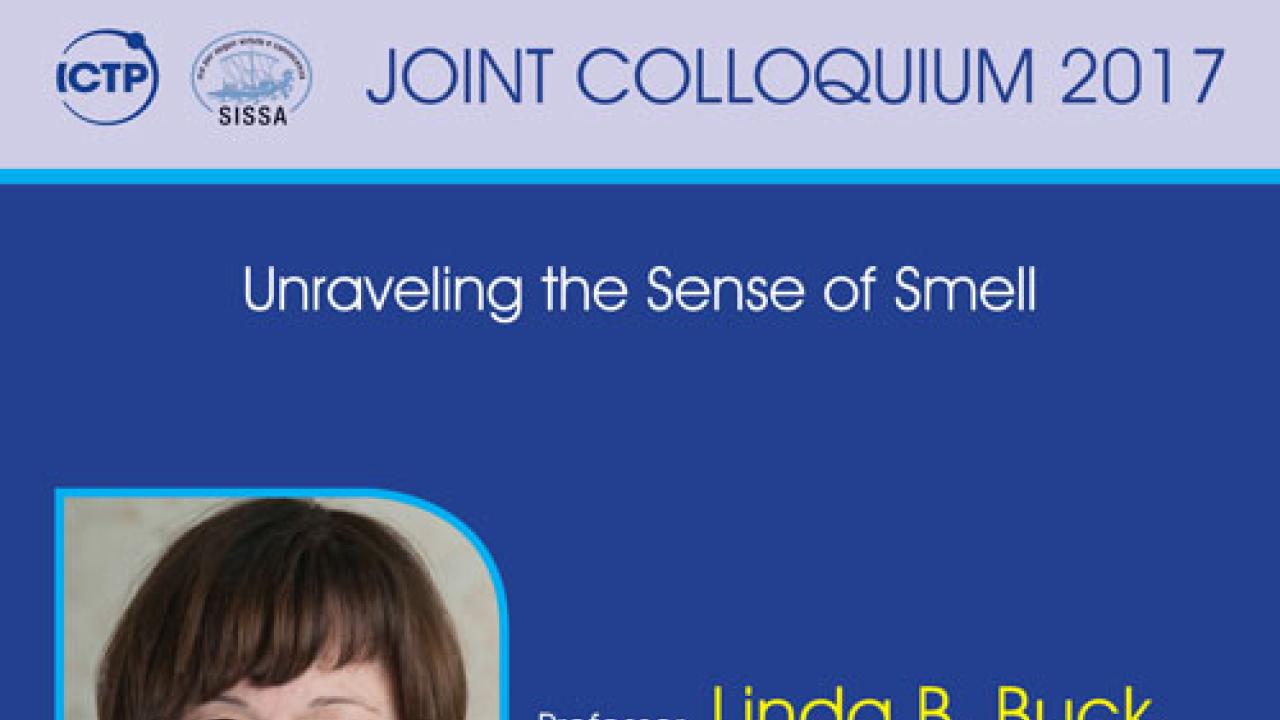
An odour can trigger a memory, cause disgust, or even save our lives. Nonetheless, although it is so important for our existence, olfaction still remains the most enigmatic of our senses. Its mysteries and marvels will be analysed by Nobel Laureate Linda Buck during the ICTP - SISSA Colloquium open to the public, titled “Unraveling the sense of smell". The American neurobiologist will share the main phases of forty years of research on the functioning of the olfactory system and its impact on emotions and behaviors. The Colloquium will take place on Tuesday 25 July at 5:00 p.m in ICTP's Budinich Lecture Hall, Leonardo Da Vinci Building.
How can human beings and mammalians recognize and remember more than 10,000 different odours and how is it possible that almost identical substances produce distinct odours? This is the enigma that toward the mid-1980s fascinated Linda Buck, an American neurobiologist, leading her to be awarded, jointly with Richard Axel, the Nobel Prize in Physiology or Medicine in 2004 owing to the their discoveries of odorant receptors (proteins) and the organization of the olfactory system. The two, in fact, identified a gene family comprised of some 1,000 different genes (3% of our genes) that give rise to an equivalent number of receptors in olfactory neurons present in the nasal cavity. The activation of these proteins triggers electric signals that, duly processed, allow to identify, categorize and memorize myriads of odorants that vary in concentration and molecular structure.
Buck will be in Trieste for the “Conference on Frontiers in Olfaction," scheduled from 24 to 28 July. The event, organized by ICTP and SISSA, will bring together scientists from various fields –physics, chemistry, computer science, genomics and many others – committed in understanding the functioning of the olfactory system using the most novel experimental techniques. To mention some: imaging/recordings in awake behaving animals, next-generation sequencing and optogenetics, a combination of optical and genetic techniques to modulate the activity of neuronal circuits. Another theme that will be covered during the conference will be olfaction in insects, mice, and man as well as an original project of crowdsourcing competition devoted to defining computational models capable of forecasting the value and intensity of various odours on the basis of shared data. Among the participants, coming from all over the world, even several researchers active in environmental monitoring. During the Colloquium Buck will illustrate how the olfactory system allows to recognize and distinguish an infinity of odours coming from the surrounding environment, as well as pheromones—substances produced by living organisms to send signals to other individuals of the same species – and predators’ odours, modulating emotions and instinctive behaviours.
About Linda Buck
Linda Buck is one of the few women (48 vs 833 men) to have been awarded the Nobel Prize. In her biography she states that growing up she never imagined becoming a scientist. Her parents would tell her over and over again that she could achieve anything in life and spurred her to cultivate independence and critical thinking. She ascribes her bent for science to her parents’ passion for puzzles and inventions. It took Linda Buck several years to decide that she wanted to become a biologist. She then started her career which, passing through Columbia University and Harvard, led her to identify the receptors of odorous molecules and to study the functioning of the olfactory system and its impact on our behaviours.
Buck is a Full Member at Fred Hutchinson Cancer Research Center and an Affiliate Professor at the University of Washington. She is a Member of the National Academy of Sciences, the National Academy of Medicine, and the American Academy of Arts of Sciences, a Fellow of the American Association for the Advancement of Science, and a Foreign Member of the Royal Society. The scientist has been the recipient of numerous honours and awards, including the Unilever Science Award, the Lewis S. Rosenstiel Award for Distinguished Work in Medical Research, the Gairdner Foundation International Award, and, in 2004, the Nobel Prize in Physiology or Medicine.
----Nico Pitrelli
















